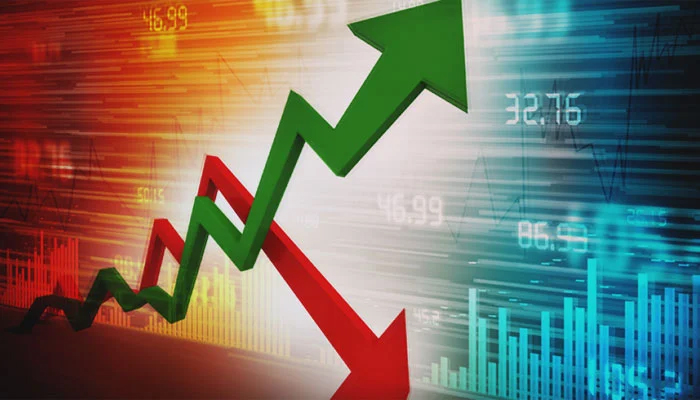Will the economic bubble burst?
As Pakistan witnesses a rising deficit, questions surrounding its pace of economic growth have appeared on the horizon
September 22, 2021

As Pakistan witnesses a rising current account deficit, questions surrounding its pace of economic growth and its failure to protect households from rising inflation have appeared on the horizon once again.
Is Pakistan surrounded by yet another economic bubble that may burst in the not-too-distant future? That is the riddle at the heart of Pakistan’s economic outlook as the Imran Khan government pats itself on the back, predicting a turnaround for a beleaguered economy.
More than three years after the prime minister and his Pakistan Tehreek-e-Insaf (PTI) swept to power in Islamabad, armed with promises of creating a ‘naya’ or new Pakistan, there’s a sense of deja vu all around. Driven by Pakistan’s economic history, rife with periods of rising prosperity only to be followed by an uncomfortable downturn, the writing on the wall is hard to miss.
Such periods of prosperity have often touched the lives of only a few. On Monday, the State Bank of Pakistan (SBP) raised its interest rate by 25 basis points or 0.25% in the face of recent pressure on the rupee that triggered an erosion of the Pakistani currency versus foreign currencies, notably the US dollar. The policy change that took the SBP’s benchmark interest rate to 7.25% gives little comfort to Pakistan’s mainstream population, at least for now.
There are two visible risks surrounding the country’s economic trends, notwithstanding the claims of ‘sub acha’ or all is well.
On the one hand, the widening international trade gap that has fuelled a mounting current account deficit has been caused by fast-rising imports in contrast to Pakistan’s exports. The gap has been fuelled in part by luxury imports such as automobiles and mobile phones — to name the two widely cited examples.
Meanwhile, there is no assurance that fast-rising imports may give an impetus to Pakistan’s future exports — a widely touted formula that has failed time and again. One sorry outcome of this trend has been the recent dip in the exchange rate of the Pakistani rupee versus the US dollar, as importers scramble to purchase foreign currency stocks from the open market.
On the other hand, the facade of prosperity, as exhibited through the fast-paced arrival of consumer goods, creates the risk of masking the downside risk surrounding Pakistan’s economy. The most visible risk relates to the continued failure by the Imran Khan government in ensuring an adequate supply of food items at affordable costs for the people. Since Imran Khan’s government took control, many people have increasingly lamented the continuous increase in prices of essential food items.
Beyond these two extremes — a rising current account deficit and the fate of ordinary people — there has been little movement for reforming state institutions that stand right at the heart of the economy.
In recent days, news of tougher punitive measures targeting tax defaulters has been a powerful reminder of a story witnessed too often in the past when promises of harsh actions against tax evaders eventually came to naught. Besides, Pakistan’s pool of prospective investors has already shrunk in size as many business owners apparently retreat from investment frontiers in the wake of open-ended promises of anti-corruption probes led by the National Accountability Bureau (NAB).
The bubble in its latest manifestation has been built upon fanciful notions such as the promise of a fast-paced growth in the construction sector, aided by pie-in-the-sky types of projects, such as the creation of a new city just outside Lahore. Incentives for construction have been aided with controversial steps such as the Imran Khan government exempting investors from disclosing their sources of funds/income. It is a deeply debatable step that has once again opened the gates for money laundering to a few wealthy people, who are likely to be tax evaders, of Pakistan.
The bubble may be intact for now, but students of Pakistan’s economic history have ample reason to be deeply sceptical of the road ahead.
The writer is an Islamabad-based journalist who writes on political and economic affairs. He can be reached on [email protected]
Originally published in The News











